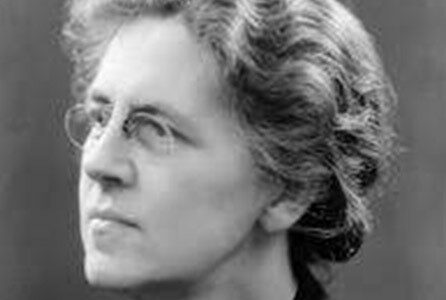
France
Nadia Boulanger was famous as a music teacher over the course of the 20th century, but her composition work is little-known. She stopped believing in her own creative talents in the 1920s, and dedicated herself to promoting the works of her sister Lili. She was born in 1887 in Paris, into a family of musicians: her mother, Raïssa Mischetsky, was an amateur opera singer, and her father, Ernest Boulanger, a composer and voice teacher. Her family’s social circle included eminent musicians such as Gabriel Fauré, Charles Gounod, Jules Massenet, and Camille Saint-Saëns. Her career at the Paris Conservatory is impressive: between 1898 and 1904, she won prizes for solfège, harmony, organ, accompaniment, counterpoint, and fugue. But she had her sights firmly set on the Prix de Rome, which had opened to women in 1903. For her third attempt, in 1908, she was the runner-up for the Second Grand Prix. She competed again in 1909 without success, and gave up on her hope of being the first woman to win the Prix de Rome for composition – a feat achieved by her sister Lili in 1913. She nonetheless continued her creative pursuits, and became a conductor. She conducted some of her own orchestral mélodies, as well as her Fantaisie pour piano et orchestre in January 1913 in Berlin with her mentor, famous pianist Raoul Pugno. The piece was performed again in Paris in February 1913, but Pugno’s death late that year seems to have put an end to Nadia Boulanger’s aspirations as a composer. In 1909, she and Pugno had co-written a cycle of mélodies, Les Heures claires, and had worked on an opera, La Ville morte, on a libretto by Gabriele D'Annunzio based on La Città morta (1896). Programmed for the Opéra-Comique’s 1914-1915 season, it was canceled due to the war. Nadia Boulanger composed a few more mélodies, but dedicated herself entirely to conducting and teaching after 1921.
– Florence Launay –
[Traduction en anglais : Raphaël Meyer]
– Florence Launay –
[Traduction en anglais : Raphaël Meyer]
List of Works
Contributor:
Présence Compositrices - last updated 10 December 2025